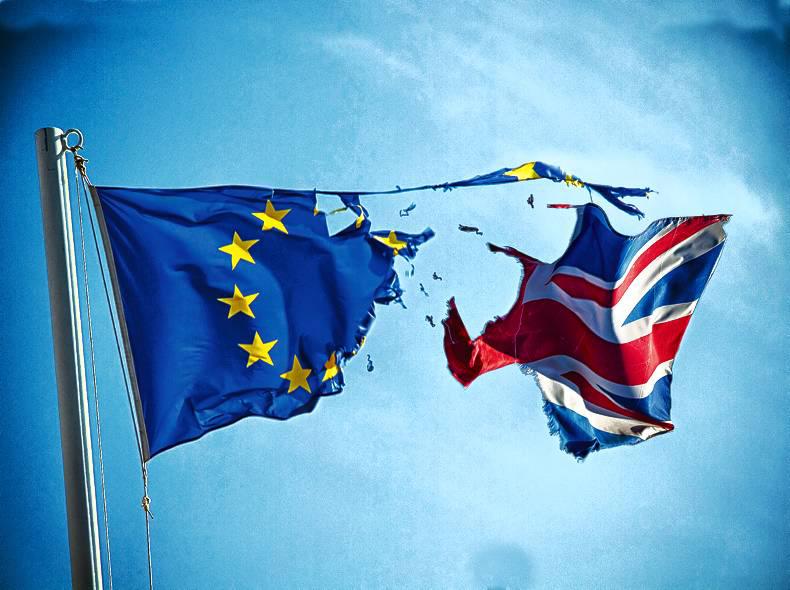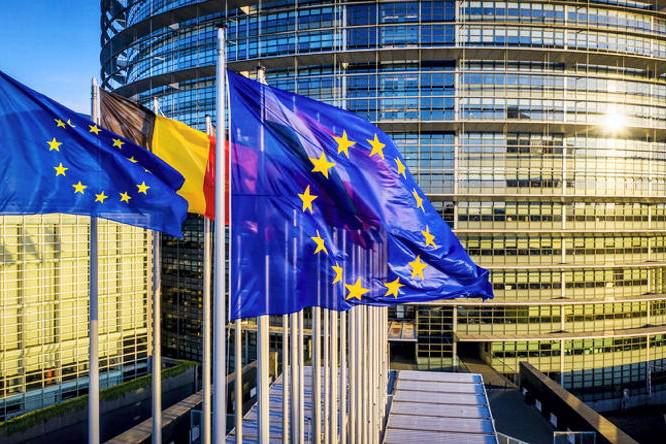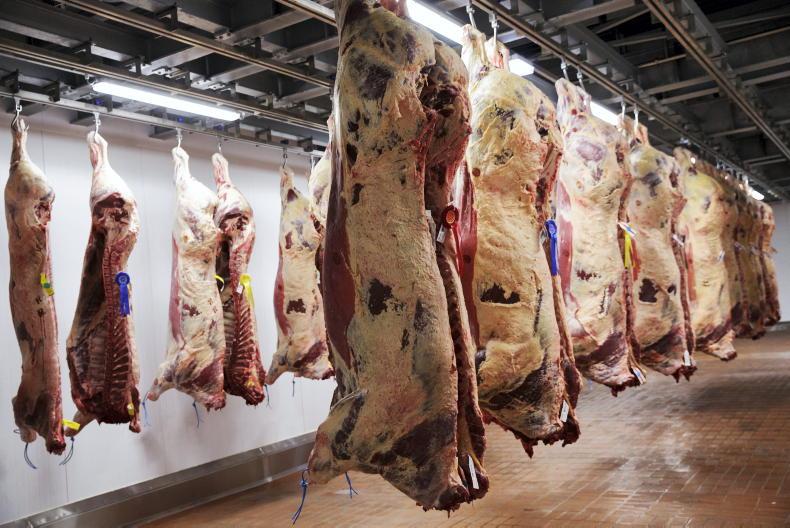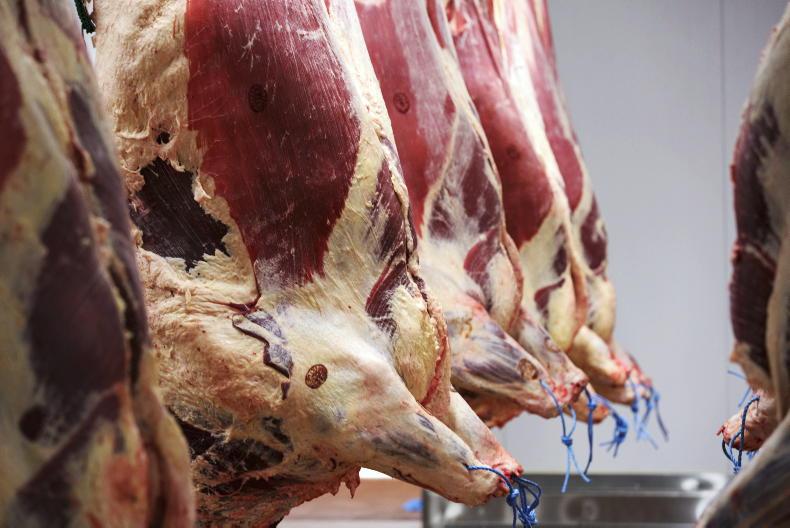The UK government has decided to put the question of continued UK membership of the European Union (EU) to UK voters in June of this year. The UK is the number one export destination for Irish goods, with agri-food exports in 2014 worth over €4.5bn out of a total agri food export value of €11bn.
If the UK votes in favour of leaving the EU, it would be mutually beneficial to both the UK and EU to delay Brexit for a period of time to allow suitable arrangements to be negotiated and put in place. While technically Brexit could occur as early as July 2018, it is conceivable that it could take up to a decade to come about.
Importance of the UK market
Agri-food exports represent about one-third of Ireland’s total merchandise exports to the UK, primarily in the form of beef, dairy products and processed foods.
A little appreciated fact is that Ireland’s imports of agri-food products from the UK are also substantial, amounting to €4.1bn in 2014, with imports of processed food, raw milk for processing, alcoholic beverages and soft drinks being the most significant. Overall, this means that Ireland had an agri-food trade surplus with the UK of the order of €456m in 2014.
Should the UK remain in the EU, it could be expected that Irish agri-food export opportunities to the UK would increase over the coming years. This is because of the strong population growth the UK is expected to experience, alongside a relatively stable level of agricultural production there.
By contrast, should the UK vote to leave the EU, this would have negative consequences for the UK’s trade with EU member states, including Ireland. The impact which Brexit would have on the Irish agri-food sector would depend on a range of factors. The UK’s future trading relationship with the remaining EU members (EU27) is the most important.
The UK might negotiate a trading arrangement with the EU that closely approximates a Free Trade Agreement (FTA), and this would be the most desirable outcome for Ireland should a Brexit occur. Administrative costs associated with trade with the UK would increase for Irish exporters, even under an FTA, meaning that even the most favourable Brexit outcome would have a negative impact on the Irish agri-food sector. While the volume of trade might be relatively unhindered under an FTA arrangement, the cost of doing business with the UK would increase.
The most negative outcome for Ireland would result if the UK and EU27 failed to negotiate the terms of the UK’s exit. This would result in the imposition of tariffs on trade between the UK and the EU27 and would be expected to lead to a greater reduction in the level of trade between the UK and the EU27 than would be the case under an FTA.
Under Brexit, the UK would also need to address its trading relationships with other countries around the world. As it would no longer be an EU member, the UK would be free to negotiate deals not alone with countries that already have a trade deal with the EU, but also with countries that do not yet have a deal (such as Australia, New Zealand or Brazil). The least desirable outcome for Ireland would occur should the UK establish liberal trade agreements with these countries. Given that they have a larger export capacity, this would increase the supply of agricultural commodities in the UK and in Europe generally, with adverse consequences for UK and EU commodity prices and greater competition for Irish exporters on the UK market.
Even if the UK and EU end up imposing tariffs on agri-food sector trade, that trade is unlikely to collapse. The UK would need to continue to import agri-food products, and would not be expected to develop an agri-food self-sufficiency policy.
If tariffs were imposed on trade between the UK and EU, Ireland’s beef, dairy and lamb exports would be affected. Denmark’s pig and dairy trade and the Netherlands’ exports of vegetable products would also be affected. In southern Europe, exports of wine from France, Spain and Italy would be affected, as would exports of olive oil from Greece.
Brexit would not have the same effect on each individual commodity markets in the EU. It could present more of an issue for the Irish dairy and beef sector than for cereals and sheepmeat. This is because reduced access to the UK market for Irish exporters would create a great shift in supply and demand in the EU dairy and beef market, potentially leading to lower dairy and beef prices. On the flip, side if Brexit reduced the capacity of the UK to export sheepmeat to the EU, it could actually lead to higher EU sheepmeat prices
Future UK agricultural policy
The effect of Brexit on the Irish agri-food sector, would also depend on the future direction of UK agricultural policy, which is another unknown.
The UK government is opposed to the system of direct payments and would be free to develop its own agricultural policy if it left the EU. The UK could cut agricultural spending and target spending toward environmental measures. This would have a negative effect on UK agricultural incomes and land prices. Significant structural adjustment could then occur at the farm level, possibly taking UK agriculture in the direction of a New Zealand system.
However, our view is that a post-Brexit UK would be likely to keep its agricultural policy closely aligned with the CAP, for a few years at least, to avoid the major disruption to its agriculture sector, that would result from a radical policy change. Wales, Scotland and Northern Ireland would also likely be resistant to a change in policy, which could also limit policy reform, and the UK could end up with an agricultural policy that is broadly similar to the CAP for the next decade or so.
Potential impact for Irish agri-food exports
Irish agri-food exports to the UK would decline as a result of Brexit, but this reduction would be partially offset by an increase in the value of exports to other destinations, where prices are not likely to be as high as those achieved on the UK market.
Four scenarios have been analysed and described in detail in our report. In each of these scenarios, Irish-UK agri-food exports decline by differing amounts. This is because Irish exports that would have gone to the UK are diverted to other markets, with this trade diversion having a greater adverse impact on export values in the more extreme scenarios. The diverted trade takes place at lower prices than would have been the case if the products were shipped to the UK.
The largest impact shows a reduction in total Irish agri-food exports of over 7% or €800m per annum. The smallest impact of Brexit, in the scenarios examined, is an annual loss of agri-food export value of circa €150m or 1.4% of agri-food export value. This would have an adverse effect on farm prices in Ireland.
The potential impact of Brexit on the Irish agri-food sector in aggregate should not be seen as an indication of the potential impact on any individual Irish food business exporting to the UK. There is likely to be a higher degree of risk associated with Brexit for those Irish food businesses with a substantial dependence on the UK market.
Potential impact on agri food exports from the UK to Ireland
It is difficult to envisage the implications which impediments to free trade would have on Ireland’s considerable agri-food imports from the UK. Were UK exports to Ireland to decrease, it is possible that some of the gap could be filled by indigenous Irish food producers, particularly if access to the UK market has become more limited for these Irish firms. Alternatively, products could be sourced from elsewhere in the EU and imported into Ireland. This is particularly likely in the case of international brands with a food manufacturing presence throughout the EU.
The precise outcome would depend on the capacity of indigenous Irish producers to scale up production to meet the increased domestic market opportunities, supplier decisions taken by food retailers in Ireland and Irish consumer preferences for product from Ireland over products produced elsewhere in the EU27.
It could be argued that Irish agri-food businesses with no exposure or very limited exposure to the UK market at present could actually benefit from Brexit, due to reduced competition on the Irish market from UK based food businesses.
Requirement for further analysis
Should the UK choose to leave the EU, then in the coming years there will be a requirement for detailed sectoral analysis of the implications for Irish agricultural and wider Irish agri-food industry, based on the most realistic set of post-Brexit agricultural and trade policy assumptions. The accuracy of any assessment on the impact of Brexit will increase as the terms of Brexit become clearer.









SHARING OPTIONS